Marketing for SaaS startups is different from traditional businesses. Software as a Service (SaaS) operates on a subscription-based model, focusing on long-term customer engagement rather than one-time purchases. This makes it crucial to not only attract new customers but also retain existing ones, driving lifetime value. In this post, we’ll break down the essentials to kick-start your SaaS marketing efforts, ensuring sustainable growth.
Ever wondered what makes marketing for software companies so different from traditional product marketing? If you’re in the B2B world, especially around Zagreb or Graz, SaaS marketing might be something you hear more about, and for good reason. Understanding SaaS (Software as a Service) marketing is becoming crucial as businesses shift toward more cloud-based, subscription services.
In this guide, we’ll break down what SaaS marketing is, and how it’s different from traditional marketing, and give you insights into how to market your SaaS product effectively.
What is SaaS Marketing?
SaaS marketing stands for Software as a Service marketing. It’s focused on promoting cloud-based, subscription software, which is often sold as a solution to specific business problems. Think of SaaS products like your favorite project management app or CRM system — these tools are delivered over the internet and paid for on a monthly or yearly basis.
What makes SaaS marketing unique is that you’re not selling something physical or even a one-time purchase. Instead, you’re marketing a digital, intangible product that customers access through the cloud. Because the product is continuously updated and improved, you’re not just convincing someone to buy once — you need them to stay subscribed, month after month.
How SaaS Marketing Differs from Traditional Digital Marketing
At its core, SaaS marketing is customer-centric in a way that most other forms of marketing aren’t. In traditional digital marketing, the goal is often to attract new customers and close a one-time sale. But SaaS marketing doesn’t stop there.
Here’s how it stands out:
- Subscription Model: SaaS products are usually subscription-based, meaning the goal isn’t just to convert a lead but to keep them engaged for the long term.
- Longer Sales Cycle: SaaS products typically have a longer customer journey. From the first time someone visits your website to when they decide to sign up for a subscription, there may be months of nurturing required.
- Customer Retention: Since SaaS companies rely on recurring revenue, retention is just as important (if not more) than acquisition. In other words, you need to make sure your customers are happy and stay subscribed.
- Free Trials and Demos: One unique aspect of SaaS marketing is the frequent use of free trials and demos. This allows potential customers to experience the product before committing to a paid subscription.
Let’s dig deeper into why these differences matter.
Why SaaS Marketing Needs a Unique Strategy
SaaS marketing isn’t just about generating leads and sales — it’s about building strong, long-term relationships with customers. Here are a few things that make SaaS marketing unique:
1. No Physical Product
Since there’s no physical product to touch or try out, SaaS marketers need to get creative in showcasing their software’s value. Product demos, explainer videos, and interactive content become essential tools to show potential customers how the software can solve their pain points.
Imagine trying to explain a complex piece of software to someone who’s never seen or used it before. That’s why clear, simple messaging is critical. You need to quickly explain how your product works and why it’s better than the competition.
2. Decision-Maker Focus
In B2B SaaS marketing, you’re often dealing with several decision-makers within a company. It’s important to adress your messaging for different roles. For example, a CEO might care about how your software improves business efficiency, while an IT manager is focused on security and integration. So, your marketing needs to cover all these bases to resonate with a variety of stakeholders.
3. Managing Customer Churn
In SaaS, customer churn (when customers cancel their subscriptions) is a huge issue. Your marketing strategy can’t just focus on acquiring new users; it needs to include tactics for keeping them around. You might use email campaigns to offer product updates, share success stories, or provide resources that help customers get the most out of your software.
4. A Longer Sales Cycle
The sales cycle for SaaS products is generally longer than other B2B products. Customers need more time to evaluate whether your software fits their needs. To support this, your marketing strategy should include content for every stage of the funnel — from awareness and education (blog posts, white papers) to consideration (case studies, product comparisons) and finally, decision (free trials, demos).
5. Product-Led Growth
With the rise of product-led growth in the SaaS industry, where the product itself drives customer acquisition and retention, you might not even need a full sales team to close deals. Instead, your marketing needs to help users find your software, start using it, and then make it easy for them to upgrade to a paid plan.
Why SaaS Marketing is Essential for Success
SaaS marketing is unique because it requires a long-term approach. You’re not just selling a product — you’re building ongoing relationships with your customers, nurturing them from trial to subscription, and continually proving your software’s value.
Whether you’re a startup in Zagreb or a growing business in Graz, developing a solid SaaS marketing strategy is critical for success. By focusing on retention, offering valuable content, and providing a seamless user experience, you’ll be well-positioned to grow your SaaS business.
Ready to grow your business? Schedule your consultation today, and let’s work together to achieve your goals! If you’d like to stay connected, feel free to reach out to me on LinkedIn. I’m here to support you every step of the way.

